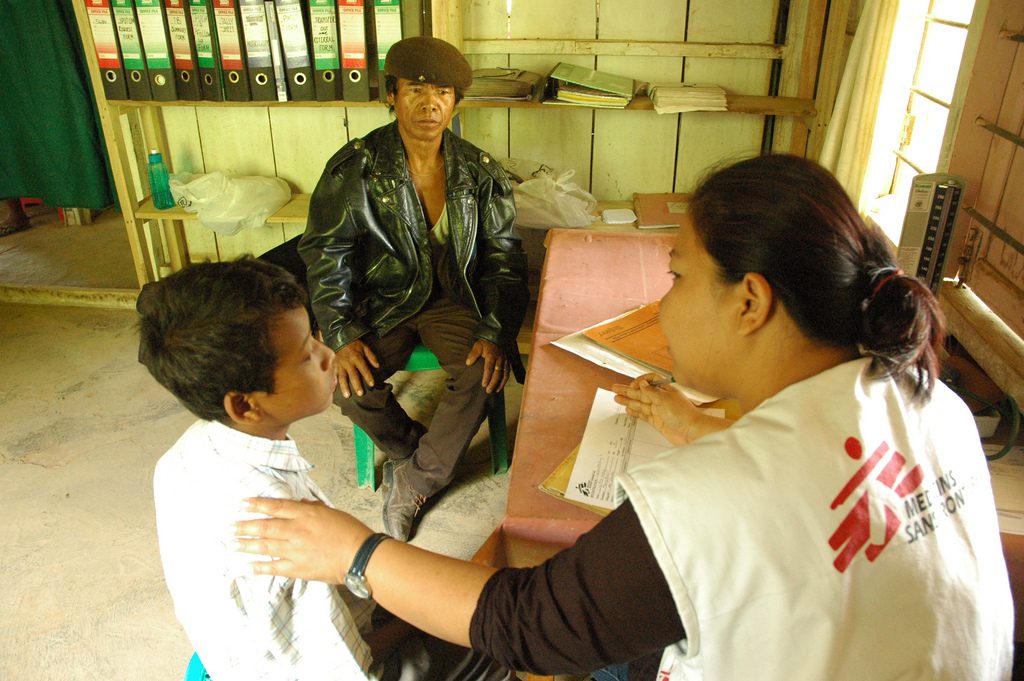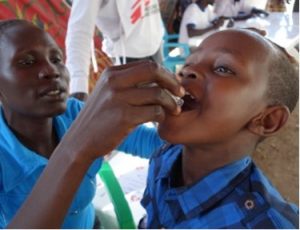Cholera control: the success of a single dose vaccine
| 31 May, 2016 | Paola Quattroni |
|

|

On 20 and 21 May we had the pleasure to attend the UK Médecins Sans Frontières Scientific Day 2016, the annual MSF conference showcasing medical and innovation research in humanitarian medicine.
On the first day, a number of excellent field researchers updated us on recent work carried out in different MSF locations. Among the speakers, Lucy Anne Parker from MSF Switzerland talked about the success of a mass cholera vaccination using a single rather than the usual double dose of vaccine to control a cholera outbreak in South Sudan.

Cholera is an infection caused by the bacterium Vibrio cholerae via ingestion of contaminated food and water. It is endemic in many countries and responsible for more than one million deaths worldwide per year. During humanitarian crises, disruption of water and sanitary systems, displacement of populations and overcrowded camps can increase the risk of transmission, making cholera a global threat to public health.
Although the best way to prevent cholera still relies on the improvement in sanitation, water supply and food safety, mass vaccination strategies to protect the populations at risk are crucial.
Mass vaccination using two doses of cholera vaccine has been proven effective at controlling outbreaks and is the strategy recommended by World Health Organization. During an outbreak in Juba, South Sudan, in 2015 though, there was a shortage of the oral cholera vaccine and MSF did not obtain sufficient doses to vaccinate high risk populations.
To overcome this problem and to avoid the risk of leaving populations unprotected, MSF and the Ministry of Health of South Sudan proposed to carry out a mass vaccination campaign using only a single dose. Part of their rationale was that immunological studies, mathematical modelling and epidemiological studies had already indicated that a single dose may provide protection against cholera, had the potential for a greater public health benefit and would be logistically simpler.
The vaccination teams targeted everyone living in afflicted areas and elsewhere those belonging to high risk groups. All people over the age of 1 received a single dose of Shanchol©, an inactivated vaccine containing killed whole cells of V. cholerae. More than 160, 000 people were vaccinated and coverage in targeted areas was estimated at about 70%.
To estimate the short term effectiveness of the vaccine, the MSF researchers conducted a case-cohort study in which they enrolled a cohort of representative sample from across Juba. They showed that vaccine effectiveness of the single dose vaccination attributed to both direct and indirect herd protection was about 80%.
The team reports on the feasibility, coverage and effectiveness of the first ever use of single dose oral cholera vaccine as an outbreak response. ‘Until sufficient doses of oral cholera vaccine are available, flexible alternative vaccination strategies are needed. These results show that both targeted vaccination campaigns and single dose regimes are feasible and effective’ – says Lucy Anne Parker. Her slides are available here.
Click here to watch a video of her talk.

|

